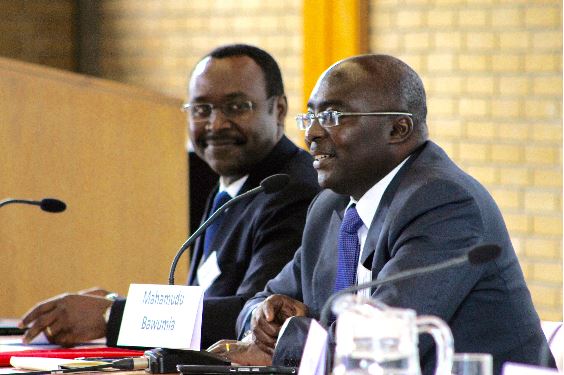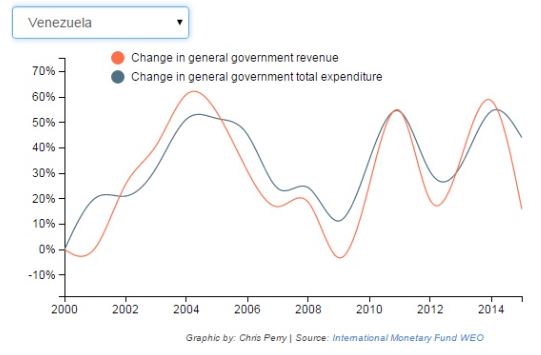
July 2015 News and Analysis from NRGI
Highlights

Watch the 2015 NRGI Conference Session Videos
This year's NRGI conference at the University of Oxford focused on the implications of falling commodity prices, bringing together policy makers, practitioners, academics and other leading experts to discuss the salient policy and governance challenges and the latest analysis on these issues.
New Producers Must Manage Great Expectations in a Time of Low Oil and Gas Prices
As part of the ongoing "Falling Prices, Rising Risks" series, NRGI's Patrick Heller reports on a recent meeting of the New Petroleum Producers Discussion Group, organized by Chatham House and co-hosted by the Tanzania Petroleum Development Corporation.
Asia Pacific Extractive Industries Knowledge Hub 2015 Training Course: Apply by 31 July
Applications are now being accepted for the 2015 course, "Improving the Governance of Extractive Industries," for Asia Pacific stakeholders involved in oil, gas and mining. Scholarships are available.
Extractive Industries Data Ecosystem: A Database of Available Data Tools for the Natural Resource Governance Sector
NRGI is not alone in its efforts to promote the use of data for advocacy, decision-making and, ultimately, governance. Myriad web portals, projects and data tools exist, and these instruments have now been catalogued in an NRGI database, making it easier than ever to compare projects and access tools.
Spotlight on Data
Why Weren't Governments Better Prepared for the Commodity Price Crash?
Crashing commodity prices have spelled crisis for some resource-rich countries, while others are weathering the storm. Economic analysts Andrew Bauer and David Mihalyi look at common success factors as well as helpful revenue management data tools.

Blog
Nigeria Oil Sector Reforms: An Agenda for the Buhari Administration
For the first time in Nigeria's history, democratic power has been transferred by a ruling party to an opposition party. Now comes the hard part: Reform of the oil and gas sector is highly central to the electorate's expectations, writes NRGI's Dauda Garuba.
Five Years and Counting: The SEC Must Step Up and Make Natural Resource Payment Disclosure Rule
"Another year goes by and the elation we felt is like a distant memory," writes NRGI's Joseph Williams of the Dodd-Frank Act, passed into U.S. law five years ago this month. Since then, industry opposition has halted progress, while other countries have raced ahead with similar, more successful legislation.
Ghana's Petroleum Exploration and Production Bill: Steps Forward, But Room for Improvement
Ghana's petroleum legislation is back in the spotlight. Following a stakeholder meeting this month, NRGI's Nicola Woodruff suggests four ways to strengthen the bill so that Ghana's petroleum resources will yield meaningful benefits for its people.
Sharing Oil Information in Tunisia: Open Data is Much More About People Than Technology
Johnny West, founder of OpenOil, discusses his work with NRGI and the Tunisian government to prepare an open data portal focused on the country's oil and gas industry.
Some Considerations for New Regulation in Indonesia's Oil and Gas Sector
Successful governance of the oil and gas sector requires strong organizations to design the rules by which the players operate and to oversee their activities, write Poppy Ismalina and Patrick Heller. This article originally appeared as an op-ed in the Jakarta Post.
EITI and Eurasia: How Data Analysis Is Improving EITI Reporting
To help stakeholders strengthen networks and analyze the wealth of data available to them through EITI reports, the Extractive Industries Knowledge Hub recently convened participants from five Eurasian countries, including Tajikistan, which will soon prepare its first report.
Securing Gas-Driven Gains: How Can Bolivia Stay Out of Commodity Price Troubles?
Bolivia has sustained a five percent annual economic growth rate over the last decade, but its success relies fundamentally on its extractive resource exports, says NRGI's Fernando Patzy, who suggests that Bolivia urgently pursue true diversification.
Rio Tinto, Mongolia, and the Art of Negotiating Amidst Price Volatility
Negotiating complex mining deals can be challenging for resource-dependent countries under any circumstances. But commodity price volatility adds an additional challenge to the mix, as Mongolia's recently concluded renegotiation with Rio Tinto on the Oyu Tolgoi project illustrates.
A Taxing Question Arises When Commodity Prices Fall
This year brought signs that another "commodity super cycle" has ended. How are governments adapting their tax policies to the "new normal"? In this analysis, economic analysts Thomas Lassourd and David Manley suggest regularly adjusting contract and fiscal terms.
NRGI in the News and Around the Web
Extractive Industries Transparency Initiative: A Missed Opportunity? Another Super-Cycle of High Commodity Prices Gone
Premium Times (Nigeria): An Oil Sector Reform Agenda for the Buhari Administration
Graphic Online (Ghana): Civil Society Cautions MPs: Don't Leave Critical Transparency Provisions Out of Exploration and Production Bill
GhanaWeb: Ghana Could Have Made Millions From Oil Hedging – Duffuor
The Commonwealth: New Petroleum Producers Survey Policy Options in Wake of Oil Price Slump
Carnegie Middle East Center: Race to the Bottom? How the Price Drop is Impacting Fiscal and Contract Terms
Premium Times (Nigeria): Nigeria: El-Rufai to Speak On Nigeria's Oil Fortune At Seventh Wole Soyinka Lecture
Mail & Guardian Africa: Buhari Disbands Nigerian Oil Board in Corruption Drive; Former Central Bank Chief Said It Lost $20 Billion
AFKInsider: Does Sub-Saharan Africa Need A Sovereign Wealth Fund?
International Monetary Fund: How to Prepare for a Commodity Price Shock
Careers
NRGI is hiring. Learn more.
The Natural Resource Governance Institute (NRGI) helps people to realize the benefits of their countries' endowments of oil, gas and minerals. We do this through technical advice, advocacy, applied research, policy analysis, and capacity development. We work with innovative agents of change within government ministries, civil society, the media, legislatures, the private sector, and international institutions to promote accountable and effective governance in the extractive industries. For more information, please see: www.resourcegovernance.org.